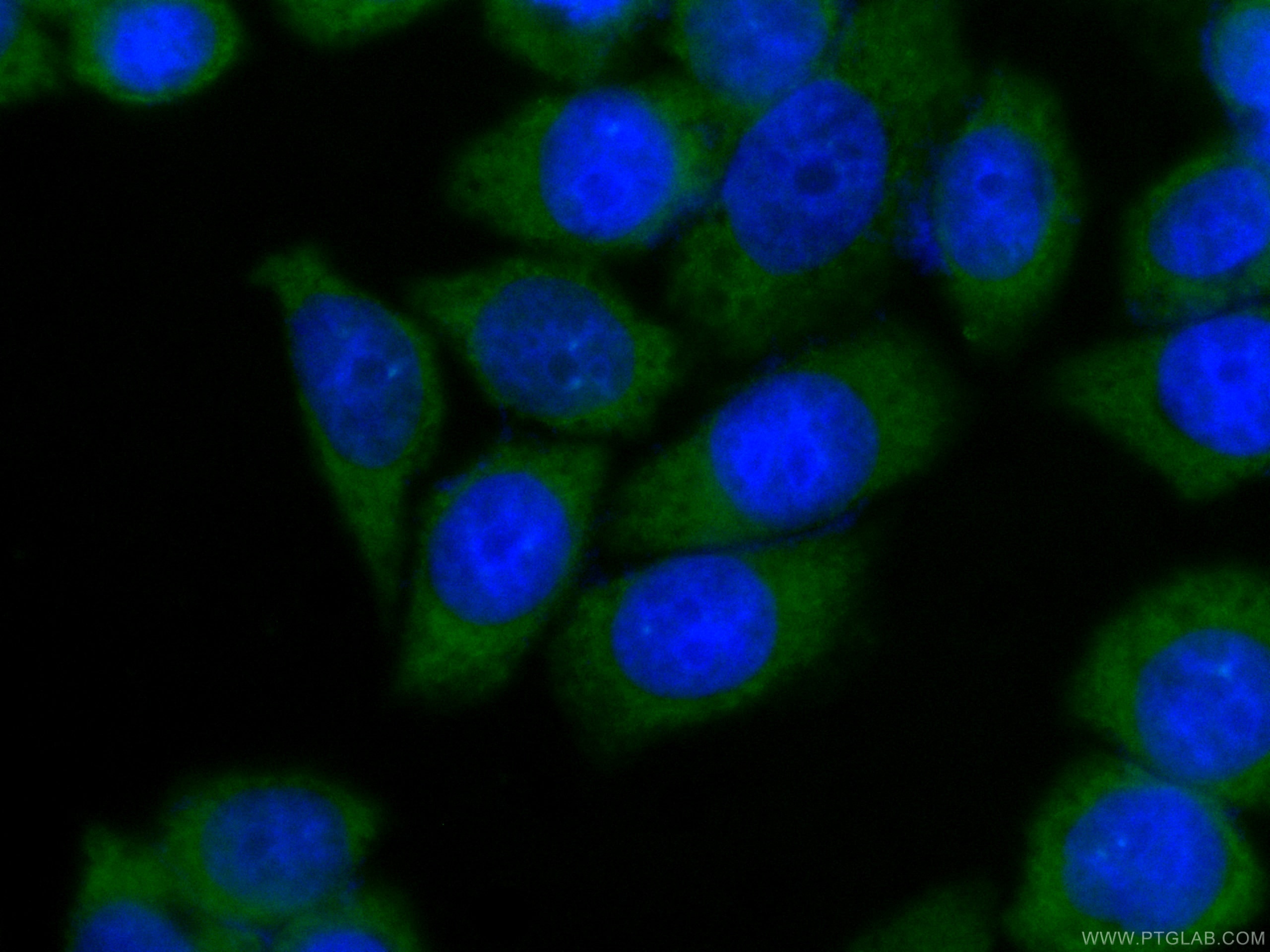- Featured Product
- KD/KO Validated
CoraLite® Plus 488-conjugated PA2G4 Monoclonal antibody
PA2G4 Monoclonal Antibody for IF
Host / Isotype
Mouse / IgG2a
Reactivity
human, rat, mouse
Applications
IF
Conjugate
CoraLite® Plus 488 Fluorescent Dye
CloneNo.
3G10D9
Cat no : CL488-66055
Synonyms
Validation Data Gallery
Tested Applications
| Positive IF detected in | HeLa cells |
Recommended dilution
| Application | Dilution |
|---|---|
| Immunofluorescence (IF) | IF : 1:50-1:500 |
| It is recommended that this reagent should be titrated in each testing system to obtain optimal results. | |
| Sample-dependent, Check data in validation data gallery. | |
Product Information
The immunogen of CL488-66055 is PA2G4 Fusion Protein expressed in E. coli.
| Tested Reactivity | human, rat, mouse |
| Host / Isotype | Mouse / IgG2a |
| Class | Monoclonal |
| Type | Antibody |
| Immunogen | PA2G4 fusion protein Ag7850 |
| Full Name | proliferation-associated 2G4, 38kDa |
| Calculated Molecular Weight | 44 kDa |
| Observed Molecular Weight | 38-42 kDa, 48 kDa |
| GenBank Accession Number | BC001951 |
| Gene Symbol | PA2G4 |
| Gene ID (NCBI) | 5036 |
| RRID | AB_2883242 |
| Conjugate | CoraLite® Plus 488 Fluorescent Dye |
| Excitation/Emission Maxima Wavelengths | 493 nm / 522 nm |
| Form | Liquid |
| Purification Method | Protein A purification |
| Storage Buffer | PBS with 50% Glycerol, 0.05% Proclin300, 0.5% BSA, pH 7.3. |
| Storage Conditions | Store at -20°C. Avoid exposure to light. Stable for one year after shipment. Aliquoting is unnecessary for -20oC storage. 20ul sizes contain 0.1% BSA. |
Background Information
PA2G4 (EBP1), first identified as an ErbB3 binding protein, is a 38 kDa protein that is widely expressed in cultured cells and tissues. The presence of several functional domains such as a nuclear localization sequence (NLS), LxxLL and LxCxE suggests the involvement of Ebp1 in cell signaling pathways and gene transcription regulation. This antibody is a mouse mono-clonal antibody raised against full length PA2G4 of human origin.
Protocols
| Product Specific Protocols | |
|---|---|
| IF protocol for CL Plus 488 PA2G4 antibody CL488-66055 | Download protocol |
| Standard Protocols | |
|---|---|
| Click here to view our Standard Protocols |


